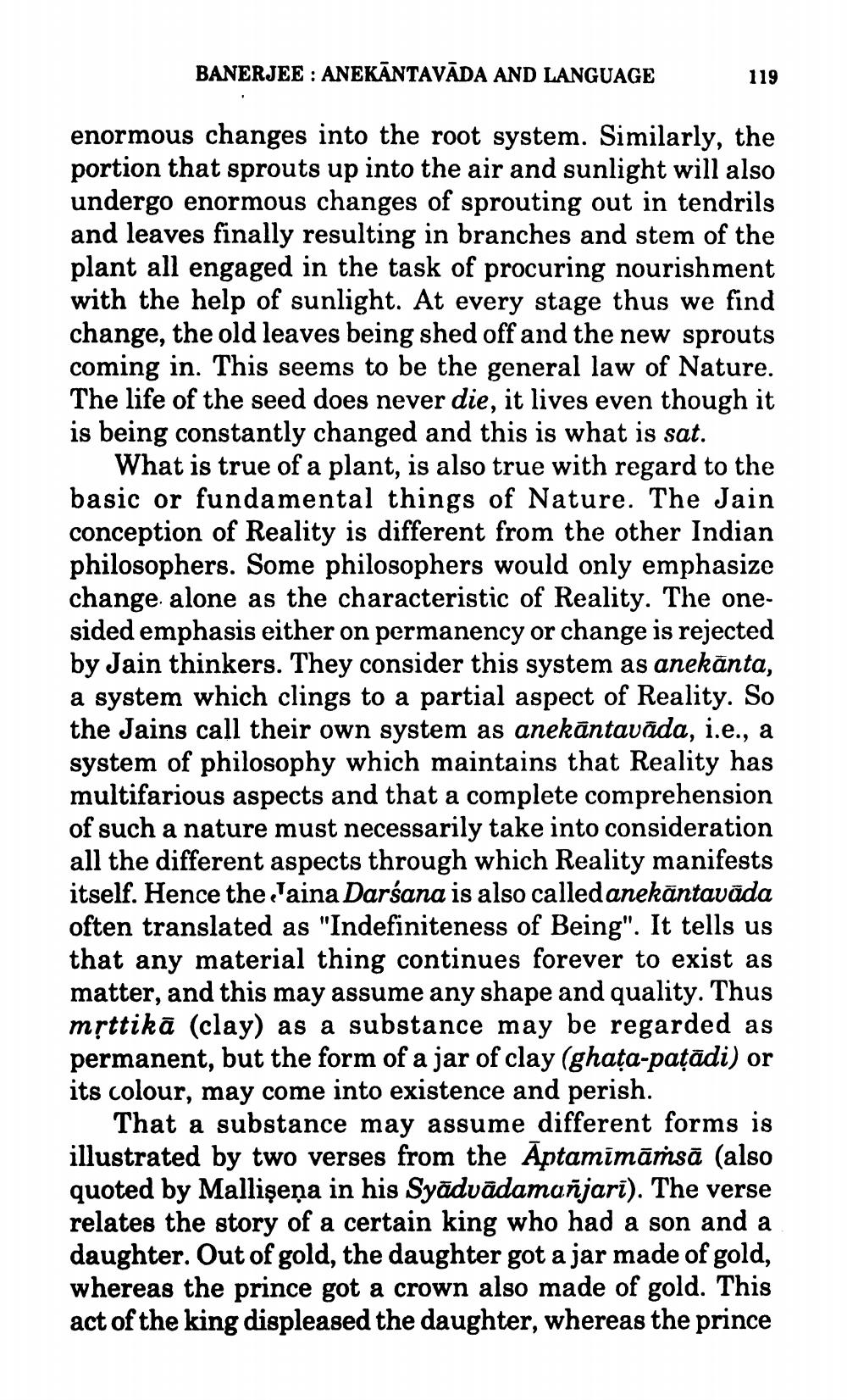________________
BANERJEE : ANEKANTAVĀDA AND LANGUAGE
enormous changes into the root system. Similarly, the portion that sprouts up into the air and sunlight will also undergo enormous changes of sprouting out in tendrils and leaves finally resulting in branches and stem of the plant all engaged in the task of procuring nourishment with the help of sunlight. At every stage thus we find change, the old leaves being shed off and the new sprouts coming in. This seems to be the general law of Nature. The life of the seed does never die, it lives even though it is being constantly changed and this is what is sat.
What is true of a plant, is also true with regard to the basic or fundamental things of Nature. The Jain conception of Reality is different from the other Indian philosophers. Some philosophers would only emphasize change alone as the characteristic of Reality. The onesided emphasis either on permanency or change is rejected by Jain thinkers. They consider this system as anekānta, a system which clings to a partial aspect of Reality. So the Jains call their own system as anekāntavāda, i.e., a system of philosophy which maintains that Reality has multifarious aspects and that a complete comprehension of such a nature must necessarily take into consideration all the different aspects through which Reality manifests itself. Hence the Jaina Darśana is also called anekantavāda often translated as "Indefiniteness of Being". It tells us that any material thing continues forever to exist as matter, and this may assume any shape and quality. Thus mṛttikā (clay) as a substance may be regarded as permanent, but the form of a jar of clay (ghaṭa-paṭādi) or its colour, may come into existence and perish.
That a substance may assume different forms is illustrated by two verses from the Aptamimaṁsā (also quoted by Mallişeņa in his Syadvādamañjarī). The verse relates the story of a certain king who had a son and a daughter. Out of gold, the daughter got a jar made of gold, whereas the prince got a crown also made of gold. This act of the king displeased the daughter, whereas the prince
119




